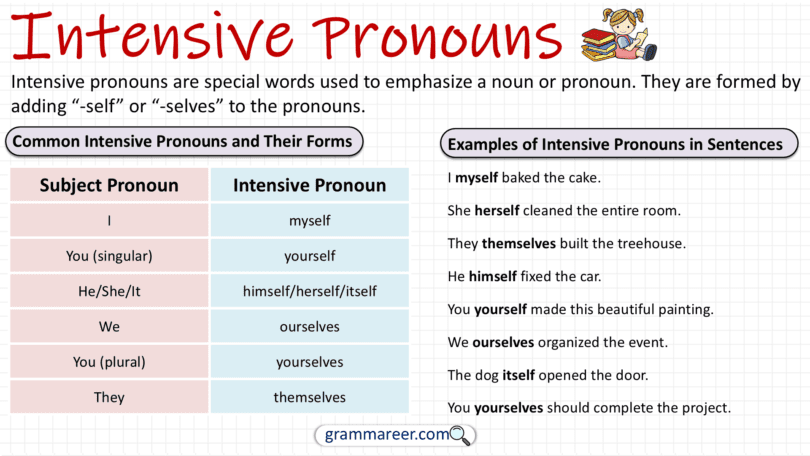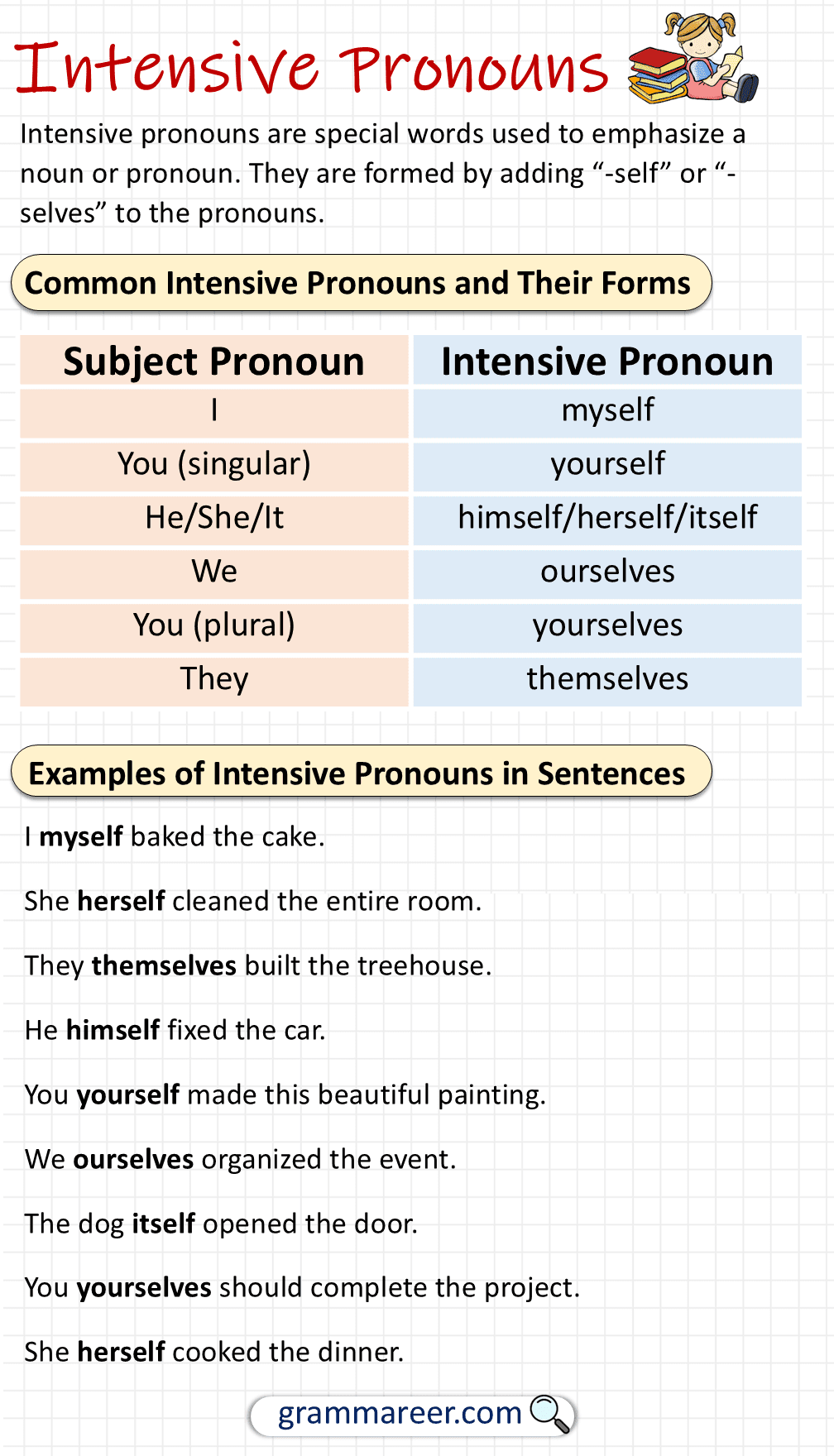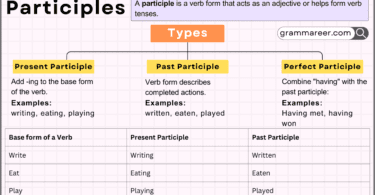Intensive pronouns are an important part of English grammar that many learners find useful for adding emphasis to their sentences. They are used to strengthen a statement by stressing who performed the action. These pronouns look identical to reflexive pronouns but have a distinct role in emphasizing the subject.
Table of Contents
Definition
Pronouns that are used to add emphasis to a subject in a sentence. The most common intensive pronouns include myself, yourself, himself, herself, itself, ourselves, yourselves, and themselves. Their purpose is to make the subject stand out, highlighting that the action was done by the subject and no one else.
- I myself cooked the meal.
- She herself solved the problem.
In both examples, the intensive pronouns “myself” and “herself” stress the fact that the person in the subject position performed the action without assistance.
Uses of Intensive Pronouns
Intensive pronouns are used purely for emphasis. They are not necessary for the sentence to make sense, but they add an extra layer of meaning by showing that the subject alone is responsible for the action. If you remove an intensive pronoun, the sentence still makes sense, but the emphasis is lost.
- We ourselves cleaned the entire house. (Emphasizing that we did it without help.)
- He himself wrote the letter. (Focusing on his personal involvement.)
Without these pronouns, the sentences would read:
- We cleaned the entire house.
- He wrote the letter.
These sentences still make sense but lose the emphasis on who did the action.
How to Identify an Intensive Pronoun
It’s easy to spot them because they are usually placed right after the subject of the sentence. If the pronoun is removed and the sentence still retains its meaning, then it’s an intensive pronoun. Remember, these pronouns are not necessary for the grammatical structure of the sentence but help to emphasize the doer of the action.
Common Intensive Pronouns and Their Forms
| Subject Pronoun | Intensive Pronoun |
|---|---|
| I | myself |
| You (singular) | yourself |
| He/She/It | himself/herself/itself |
| We | ourselves |
| You (plural) | yourselves |
| They | themselves |
Each of these pronouns is used to emphasize the subject in a sentence. These pronouns help to make the sentence more powerful by stressing who is responsible for the action.
Examples of Intensive Pronouns in Sentences
- I myself baked the cake.
- She herself cleaned the entire room.
- They themselves built the treehouse.
- He himself fixed the car.
- You yourself made this beautiful painting.
- We ourselves organized the event.
- The dog itself opened the door.
- You yourselves should complete the project.
- She herself cooked the dinner.
- The students themselves solved the problem.
In each example, they add emphasis to the subject performing the action.
Intensive vs. Reflexive Pronouns
A common confusion for learners is distinguishing between intensive and reflexive pronouns, as they share the same forms. However, the main difference lies in their use:
| Feature | Intensive Pronouns | Reflexive Pronouns |
|---|---|---|
| Purpose | Emphasize or strengthen the subject’s action | Reflect the action back to the subject |
| Usage in Sentence | Not essential; sentence makes sense without it | Essential to meaning; sentence changes without it |
| Position in Sentence | Usually right after the subject or end of sentence | Typically after the verb |
| Examples | “I myself made dinner.” | “She prepared herself for the test.” |
| Common Pronouns Used | myself, yourself, himself, herself, itself, ourselves, yourselves, themselves | myself, yourself, himself, herself, itself, ourselves, yourselves, themselves |
| Can Be Removed? | Yes, sentence still makes sense | No, sentence meaning changes or feels incomplete |
Common Mistakes to avoid
- Overuse of intensive pronouns: Using them in every sentence can lead to repetitive writing.
- Confusing them with reflexive pronouns: Remember that removing an intensive pronoun doesn’t change the meaning of the sentence, while removing a reflexive pronoun can.
Read More






